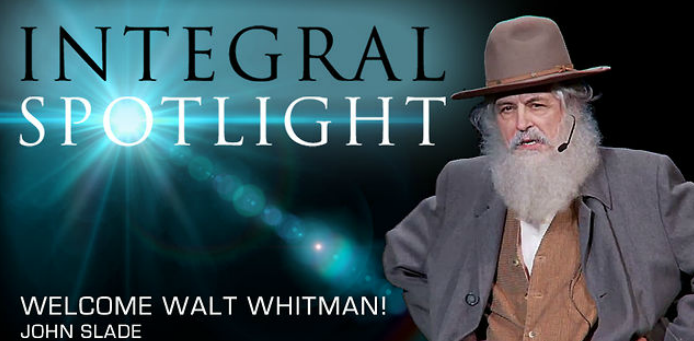Urge and urge and urge,
Always the procreant urge of the world.
Out of the dimness opposite equals advance, always subtance and increase, always sex.
Always a knit of identity, always distinction, always a breed of life.
–From Song of Myself
Walt Whitman is known as the quintessential American poet, capturing the exuberance and vitality of the young country he wandered through and wrote about in the mid 19th century. And like the contentious nation he lived in, Whitman knew great tragedy first hand. He was a nurse in Washington DC during the Civil War, caring for young soldiers who were wounded in this most brutal of conflicts, fought with cannons, muskets and bayonets.
He was fired from his job as a clerk for the Department of Interior for his scandalous poetry, which celebrated the body, sex and yes, homoeroticism. He lived most of his adult life in financial peril, as infamous as he was famous among an emergent intelligentsia (including his great admirer and champion, Ralph Waldo Emerson).
And yet, through all of this he was writing poetry that was radically heartening and hopeful, replete with palpable, mystical realization.
From Song of the Open Road:
Gently, but with undeniable will, divesting myself of the holds that would hold me
I inhale great draughts of space;
The east and the west are mine, and the north and the south are mine.
I am larger, better than I thought;
I did not know I held so much goodness.
All seems beautiful to me.
Many contemporary integralists are rediscovering this great-grandfather of evolutionary thought. Today, 150 years after it was written his poetry continues to inspire — and indeed transmit — the powers of emergent goodness, truth and beauty.
One of our best new interpreters of Whitman is John Slade, who discovered the evolutionary power of Whitman while teaching poetry to his high school English students.
“I noticed Uncle Walt’s ideas about sex and eternity still sound ahead of their time,” he writes.
 Reading through all Whitman’s poetry as well as his less-known prose and commentary, John was impressed with the writer’s deep grasp of the evolutionary principle.
Reading through all Whitman’s poetry as well as his less-known prose and commentary, John was impressed with the writer’s deep grasp of the evolutionary principle.
He has since developed a one-act play, I Sing Walt Whitman!, a 90-minute production which he describes as “an evolutionist revival meeting, designed for people to hear Uncle Walt stripped of his 19th century trappings, singing, rapping and orating his hopeful (and startlingly modern) worldview about evolution and the soul.”
John Slade offered a short taste of I Sing Walt Whitman! at the What Next Conference this past New Years. It’s a wonderful confluence of one artist reigniting another, and it brought down the house. Here it is for you to enjoy as well!





